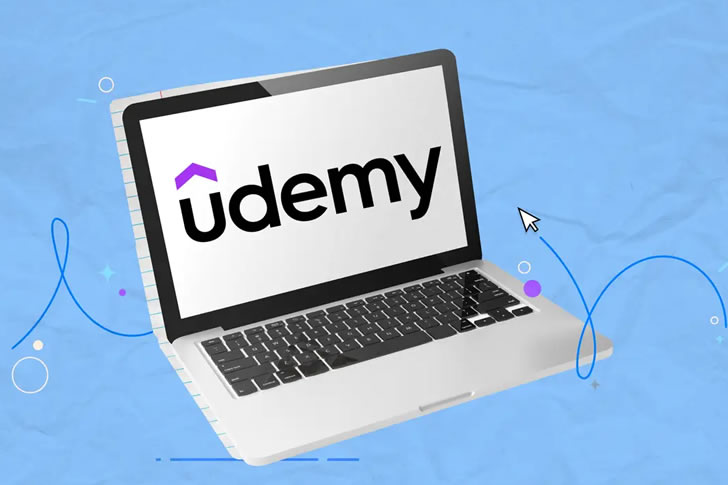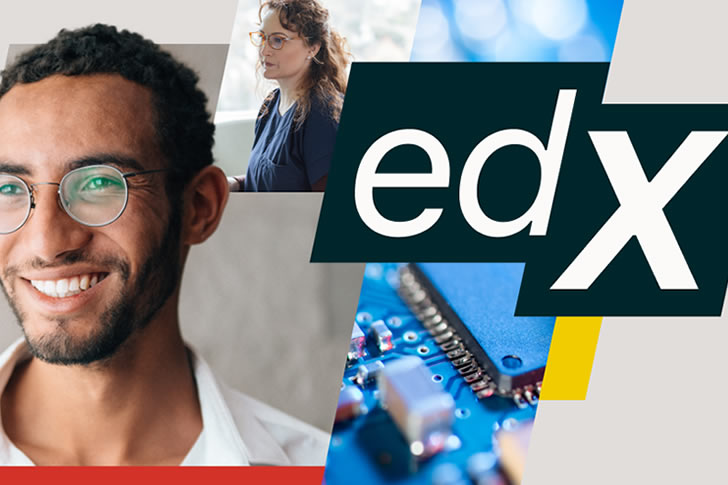Guide to Affordable Online Classes: A Gateway to Accessible Learning
Low-cost online classes are transforming education by providing affordable and accessible learning options worldwide. This article delves into the diverse range of these courses, their advantages, challenges, and their significant impact on the education sector.

The Surge of Online Learning
Online learning has become a transformative force in the educational landscape over the past decade. Technological advancements and digital platforms have shifted online education from a niche alternative to a mainstream option. According to a study by the Babson Survey Research Group, online student enrollments have steadily increased, highlighting the shift towards virtual classrooms even as traditional enrollments decline. This growth is largely fueled by the flexibility and accessibility that online courses offer, catering to non-traditional students, working professionals, and those in remote or underserved areas.
The appeal of online learning has also been bolstered by the need for continuous education amidst global disruptions, which forced educational institutions around the world to adopt more dynamic and resilient teaching methods. As a result, digital learning has not only continued but thrived, enabling uninterrupted education during times of unexpected changes.
Furthermore, online learning has become integral in corporate training and professional development, recognized for its efficiency and scalability. Businesses find that online courses can be quickly updated and expanded to adapt to rapidly evolving industry standards, making them essential for ongoing professional growth.
Advantages of Online Classes
1. Enhanced Accessibility: Online classes remove geographical barriers, enabling students from any location to access quality education. This global reach helps diversify the student body and provides opportunities for cultural exchange and broader understanding.
2. Speed of Learning: One of the standout advantages of online classes is the speed at which students can complete courses. Many online programs offer self-paced learning, which means that motivated students can complete their studies quicker than in traditional settings. Accelerated courses and certification programs allow professionals to gain new skills or enhance existing ones in a fraction of the time it would take in a conventional classroom.
3. Increased Flexibility: Flexibility is a cornerstone of online education, allowing students to learn on their own schedule. This is particularly advantageous for those balancing other commitments such as work or family. Students can study early in the morning, late at night, or on weekends, depending on what suits their lifestyle best.
4. Cost-Effectiveness: While avoiding the term “affordable,” it is undeniable that online classes can be more cost-effective compared to traditional education. They typically require lower tuition fees and eliminate the need for commuting and housing expenses. Furthermore, the ability to maintain a job while studying can alleviate the financial stress often associated with higher education.
5. Diverse Learning Environments and Resources: The digital nature of online education allows for rich multimedia content, including videos, podcasts, and interactive software, enhancing the learning experience. Students can access a wide array of resources at any time, further enriching their education.
6. Personalized Learning: Many online courses offer adaptive learning technologies that tailor the educational content to the learner’s pace and style. This can lead to better engagement and understanding, as courses dynamically adjust to meet the individual’s needs.
7. Broader Curriculum Options: Online education breaks down the barriers of limited course offerings, especially in smaller educational institutions. Students have the liberty to pursue studies in specialized fields that may not be available locally, from international business to niche areas of science and technology.
8. Professional Networking Opportunities: Contrary to popular belief, online education can also offer robust networking opportunities. Many programs are designed with interactive components like forums, group projects, and live tutorials, fostering relationships among students, professionals, and instructors across the globe.
9. Immediate Application of Skills: Online learning allows for the immediate application of skills. This is especially valuable in fast-changing fields like technology and digital marketing, where the information learned one day can be used on the job the next.
Highlighted Online Classes and Their Advantages
| # | Program Category | Providers | Advantages | Price Range | Affordable |
|---|---|---|---|---|---|
| 1 | Data Science | Coursera, edX, Udacity | Offered in partnership with leading universities and tech companies, hands-on, focusing on the latest tools and tech. | Free to $300/month for full courses; up to $15,000 for nanodegrees | Partially |
| 2 | MBA | University of Illinois (Coursera), Indiana University | Same curriculum as on-campus, fraction of the cost, online networking events. | Approx. $22,000 (vs. $60,000 on-campus) | Yes |
| 3 | Computer Programming | Codecademy, Udemy, Pluralsight | Beginner to advanced classes, frequently updated to match current standards. | Free to $50/month; courses for purchase from $10 to $200 | Mostly |
| 4 | Arts and Humanities | Khan Academy, FutureLearn, Kadenze | High-quality lectures, peer interaction, classroom feel. | Many free; certificates for $30 to $100 | Yes |
1. Data Science Programs:
- Providers: Coursera, edX, Udacity
- Advantages: Offered in partnership with leading universities and tech companies, these programs are designed to be hands-on and job-relevant, focusing on the latest tools and technologies.
- Price Range: Free for audit-only options, $50-$300 per month for full courses with certifications, and up to $15,000 for specialized nanodegree programs.
2. MBA Programs:
- Providers: University of Illinois at Urbana-Champaign (Coursera), Indiana University (Kelley School of Business)
- Advantages: These programs provide the same curriculum as their on-campus counterparts but at a fraction of the cost, offering networking opportunities through live online events.
- Price Range: Approximately $22,000, significantly cheaper than the average on-campus MBA cost of around $60,000.
3. Computer Programming:
- Providers: Codecademy, Udemy, Pluralsight
- Advantages: These platforms offer beginner to advanced coding classes that are updated frequently to keep pace with current programming standards and technologies.
- Price Range: Free courses available; subscriptions range from $20 to $50 per month; specific courses for purchase from $10 to $200.
4. Arts and Humanities:
- Providers: Khan Academy, FutureLearn, Kadenze
- Advantages: These courses often include free streaming of high-quality lectures and peer interaction to mimic a classroom feel.
- Price Range: Many options are free, with certificates available for an additional fee, usually between $30 and $100.
Challenges and Considerations
1. Recognition and Credibility: Despite their increasing acceptance, some employers and institutions may still favor traditional degrees over online certifications, although this is rapidly changing as more and respected institutions offer online programs.
2. Self-Motivation and Discipline: The success of learning online heavily depends on the student’s ability to manage their time and stay committed without the structured environment of a classroom.
3. Technical Requirements: Access to a reliable internet connection and a capable device is crucial, which can be a barrier for students in less developed regions.
Impact on Global Education
Low-cost online classes are not merely an educational trend; they represent a shift towards a more inclusive and equitable form of education. According to UNESCO, these platforms are crucial in reaching underserved populations and contributing to lifelong learning opportunities, aligning with the Sustainable Development Goals for education.
Q&A
Question1: What are some online colleges that offer laptops to their students?
Answer1: Several online colleges provide laptops to their students either on a loan basis or as part of the tuition fee to support their studies. For example, Southern New Hampshire University (SNHU) offers laptops to full-time students who are enrolled in select programs as part of a technology initiative. Similarly, Purdue University Global has a program where qualifying students can receive a laptop at no additional cost, which they can keep upon graduating. Another institution, Seton Hill University, includes a technology fee in their tuition, which covers a MacBook for students to use throughout their studies and keep upon graduation. These programs aim to ensure that students have the necessary technological tools to successfully complete their online courses.
Question2: What online classes are available for seniors?
Answer2: Many online platforms and institutions offer classes specifically tailored for seniors, aiming to provide education, skill development, and leisure activities suitable for older adults. For example, the Osher Lifelong Learning Institutes (OLLI) available at universities across the United States offer non-credit courses with no assignments or grades to seniors interested in continuing education. Subjects range from art and music to science and technology. Additionally, websites like Coursera and Udemy provide a wide range of courses, some of which are designed to be senior-friendly, focusing on topics like computer basics, digital photography, health, and wellness, or even financial planning for retirement. These courses are often self-paced and designed to accommodate the learning preferences and pace of older adults.
Question3: What is the current status of online classes in U.S.?
Answer3: The status of online classes varies across the U.S., but many states have robust programs. In California, Texas, New York, and Florida, online education is well-established with numerous universities offering a wide range of programs from undergraduate to graduate levels. States like Illinois, Pennsylvania, and Michigan have also seen significant growth in online offerings, particularly in response to increasing demand for flexible learning options. In Georgia, Virginia, and Ohio, online education is supported by both state universities and private colleges, which continue to expand their online course catalogs to include more diverse subjects. Overall, online education in these states is characterized by a trend towards greater accessibility, improved technology, and expanded curriculum choices to accommodate a wider range of students.
Reference
- https://www.cincinnati.com/story/sponsor-story/cincinnati-college-guide-spring-2023/2023/03/13/gateway-evolves-to-offer-affordable-accessible-education/69931959007/
- https://www.sophia.org/blog/higher-education/affordable-online-schooling/
- https://www.thinkific.com/blog/how-to-make-online-learning-accessible/
Conclusion
Low-cost online classes are transforming the educational landscape by making learning accessible to more people than ever before. As technology advances and societal norms around education continue to evolve, these courses are poised to become an even more integral part of the global education framework. They offer a viable alternative to traditional education, breaking down financial, geographical, and social barriers to create a more educated, skilled, and interconnected world.











Recent Comments